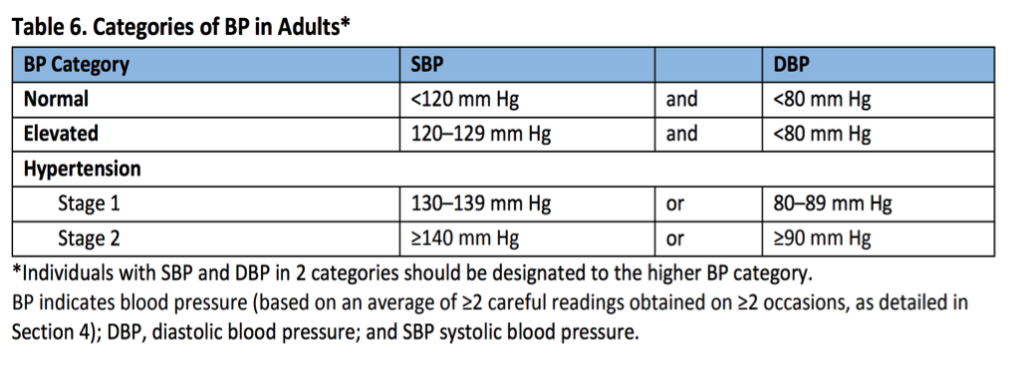High blood pressure (BP) or ‘hypertension’ means that the pressure exerted by your blood on the inner walls of your blood vessels is higher than normal. It depends on several factors like pumping capacity of your heart, volume and viscosity of your blood, and state of your vessel wall.
You would have noticed an inflatable cuff from the BP apparatus fixed to your upper arm when someone wants to measure your BP. The electronic device measures your BP by a method called “oscillatory method” whereby inflation of the cuff to a high pressure followed by deflation allows blood flow in the artery in a cyclical pattern that is captured as BP by the device.
You must have heard the term “120 over 80”; this is nothing but the upper limit of normal BP in adults. The upper number denotes systolic BP (SBP) or the peak pressure in the arteries during contraction of the heart and the lower number is the diastolic BP (DBP) or the least pressure in the arteries when the heart is actually filling with blood from the veins. Apart from BP, your heart rate (number of times the heart beats in 1 minute) is also shown on the BP monitor. The normal heart rate in a healthy adult ranges from 60-80 beats per minute in a resting condition.
The most recent international guidelines for hypertension classify BP as Normal, Elevated and High as shown in this table:
If you have never had your BP measured earlier, now is the time! You should not wait for warning signs of hypertension because quite often there are none. That is exactly why hypertension is termed a “SILENT KILLER”. Diabetes (high blood sugar) and dyslipidemia (abnormal cholesterol level) are the other two Silent Killers. All 3 should be measured at least once every year to catch abnormalities early.
Prevalence and Types of hypertension
An article published in the Journal of Hypertension in 2014 estimated that 1 in 3 persons living in cities and towns and 1 in 4 individuals living in rural areas in India are hypertensive.
- Primary hypertension is the most common type where there is no specific cause for the high BP. General preventive measures like reduced salt intake, high fiber diet, regular exercise and stress reduction techniques should be the first line of management in this case. Medications are often prescribed to control your BP, it is best to take them as advised by your doctor and not stop them on your own.
- Secondary hypertension is less common and denotes that there is an underlying medical problem for the high BP like kidney disease, hormonal disorder, structural problem in the major artery leaving the heart or other cardiac diseases. Very high BP at the time of diagnosis, blood pressure not responding to medical management and presence of other health issues are clues to this type of hypertension. Appropriate treatment of the underlying cause will help to manage hypertension in this case.
Impact of hypertension on your heart and other systems
Your heart is constantly pumping blood and supplying oxygen and energy to each and every cell in your body through your arteries. The health of your arteries is a very important factor that determines the health of your heart.
- Constant increased pressure of the blood flowing through your arteries can damage the inner wall and lead to hardening or stiffening – Atherosclerosis. This in turn can lead to heart attack, stroke and other serious problems. Another life-threatening effect of untreated high BP is Aneurysm or weakening and bulging of important blood vessels like those supplying the brain and the major blood vessel leaving the heart. Rupture of these bulging arteries can lead to instant death.
- Heart failure is one of the common complications of high BP wherein the pumping capacity of the heart drops below normal. This is measured by an echo test and the symptoms are weakness, breathlessness and swelling of feet.
- Chronic kidney disease is again very common in hypertensive individuals and is due to damage to the blood vessels supplying the kidneys. The kidney function gradually drops which is seen as rising urea and creatinine levels in blood and reduced urine formation.
- If you have high BP, regular eye checks are a must because an increased pressure in all the arteries including the arteries of the eye is possible. This can lead to damage to the back of the eye called Hypertensive Retinopathy, which can impair vision.
- Memory loss, dementia and cognitive impairment are neurological complications of hypertension.
With World Heart Day fast approaching (29 September), let us all take a pledge to know our blood pressure and keep it under control!

